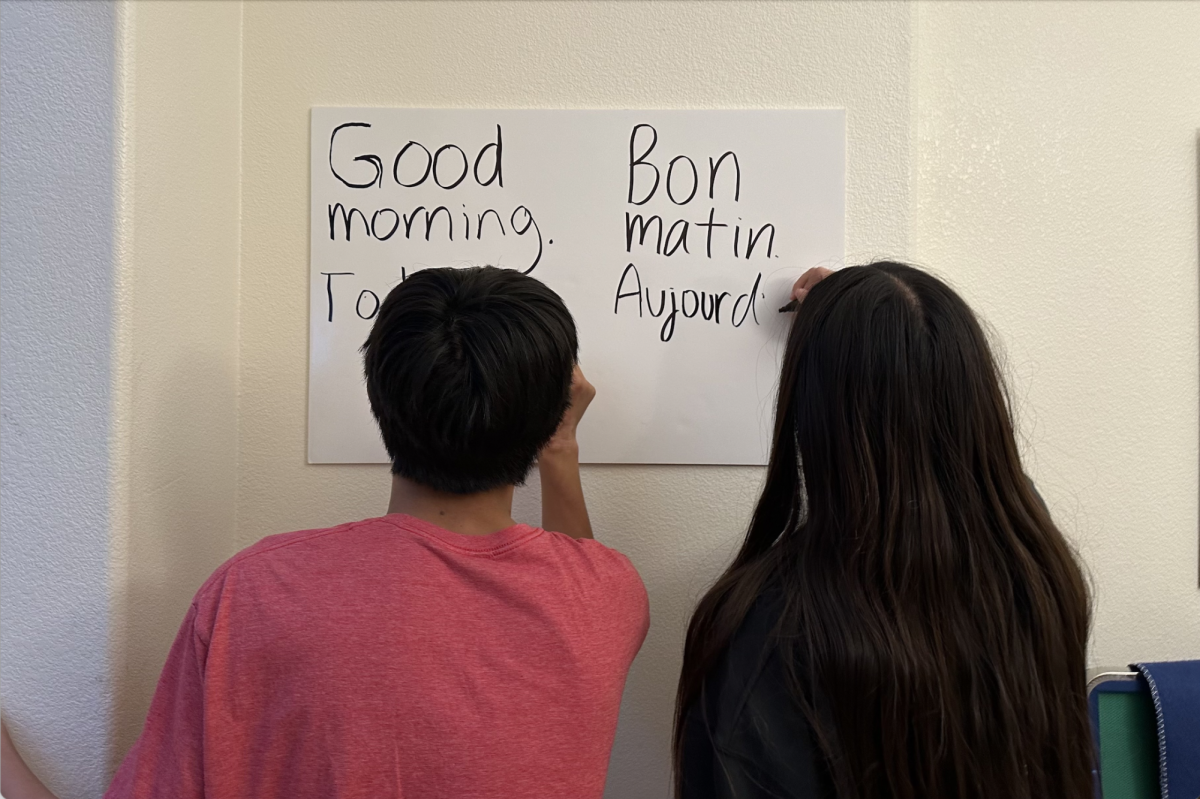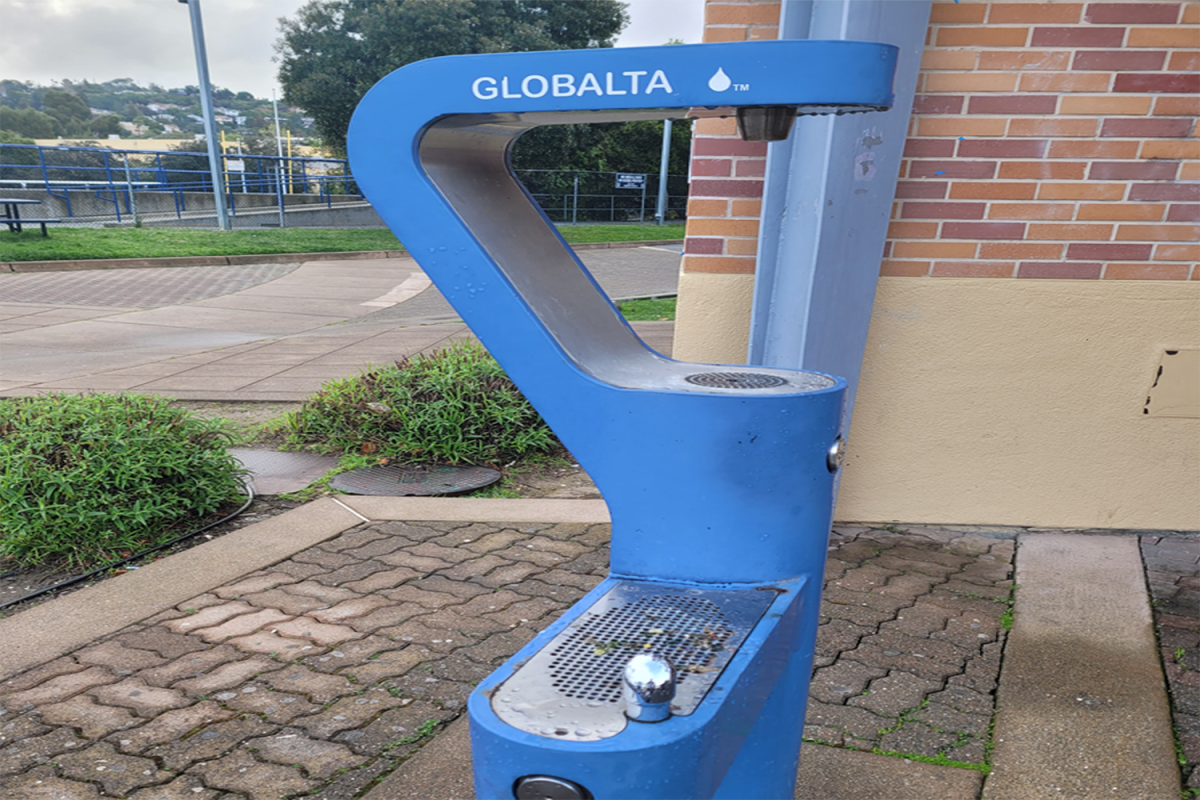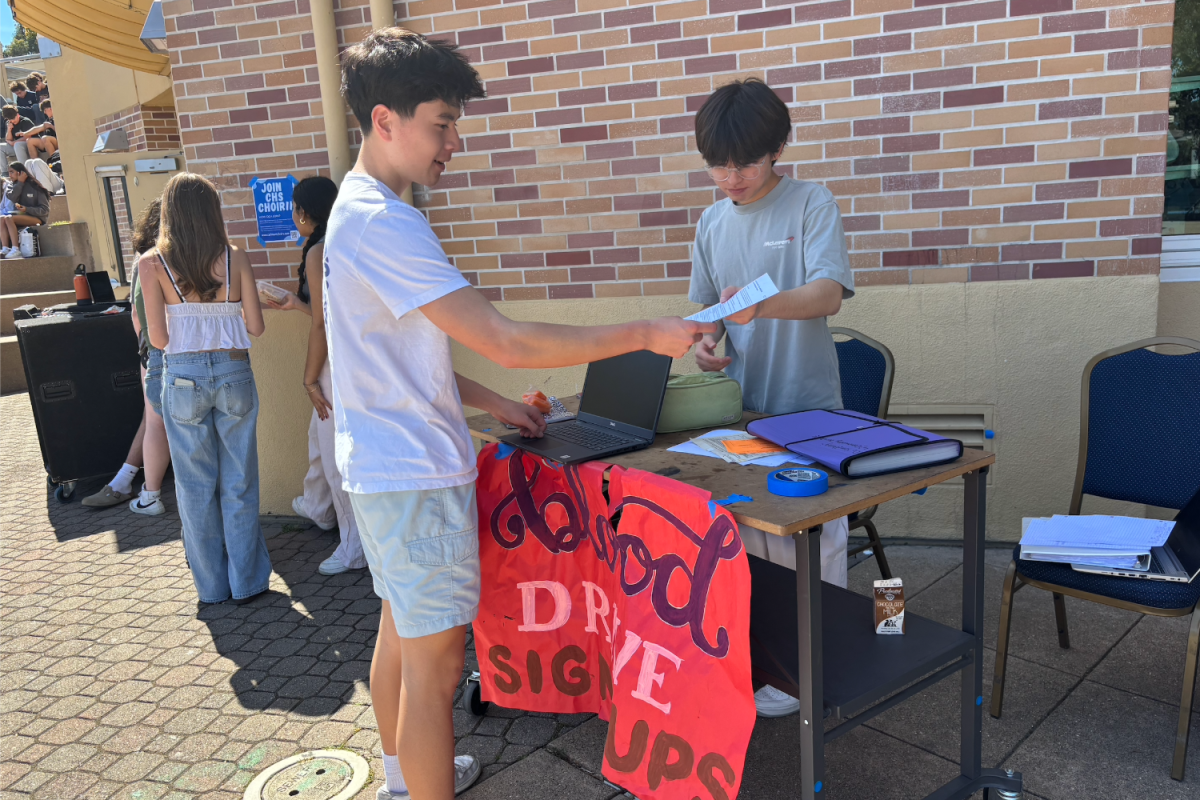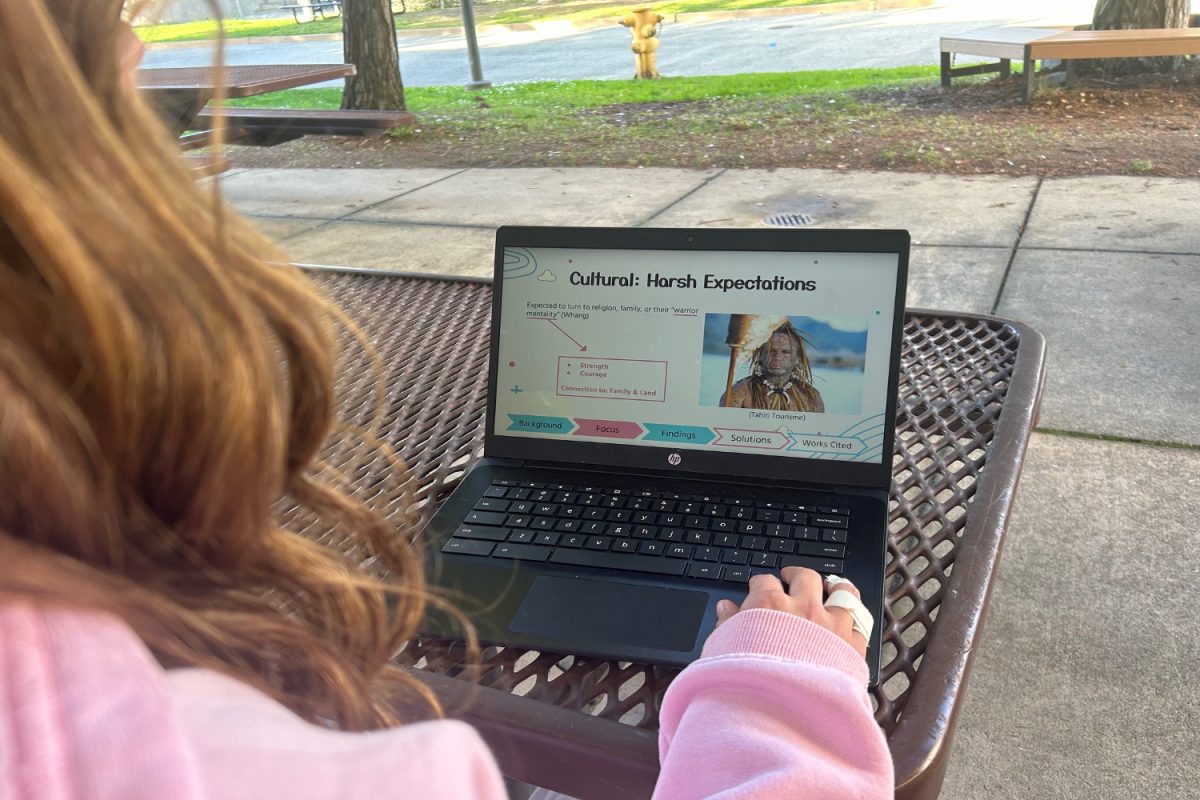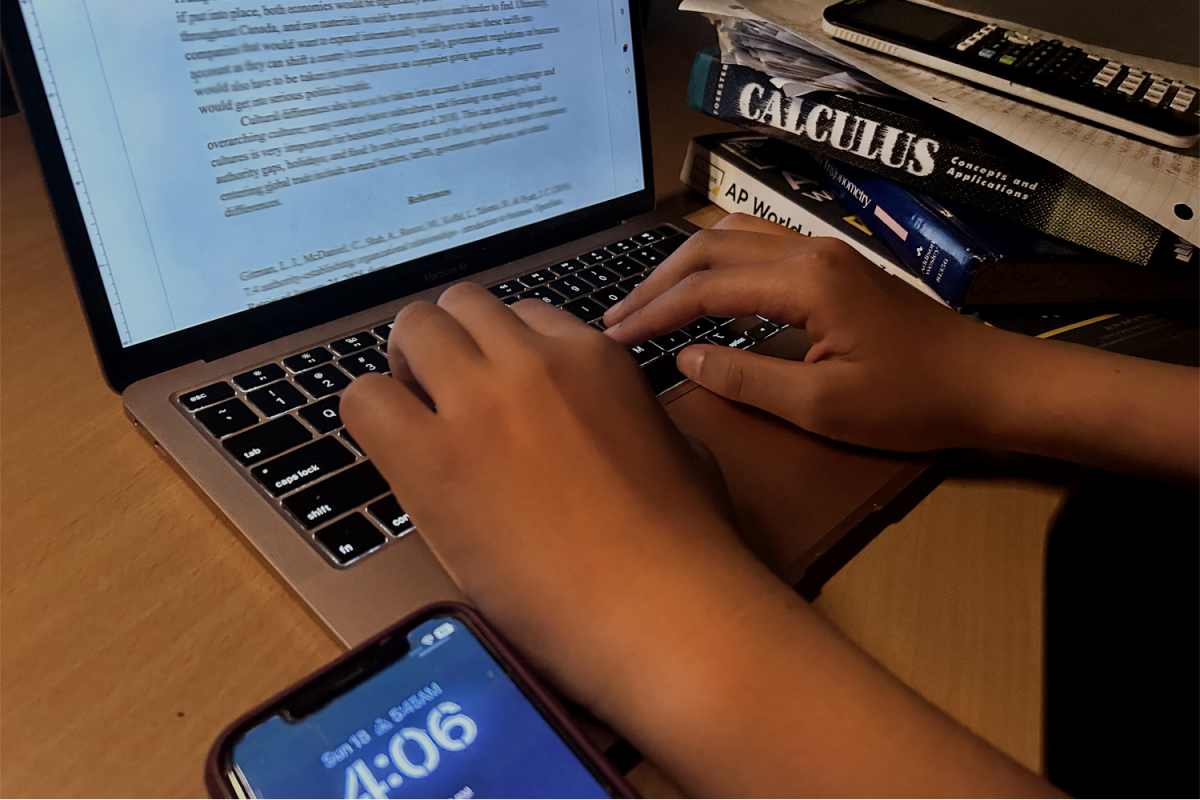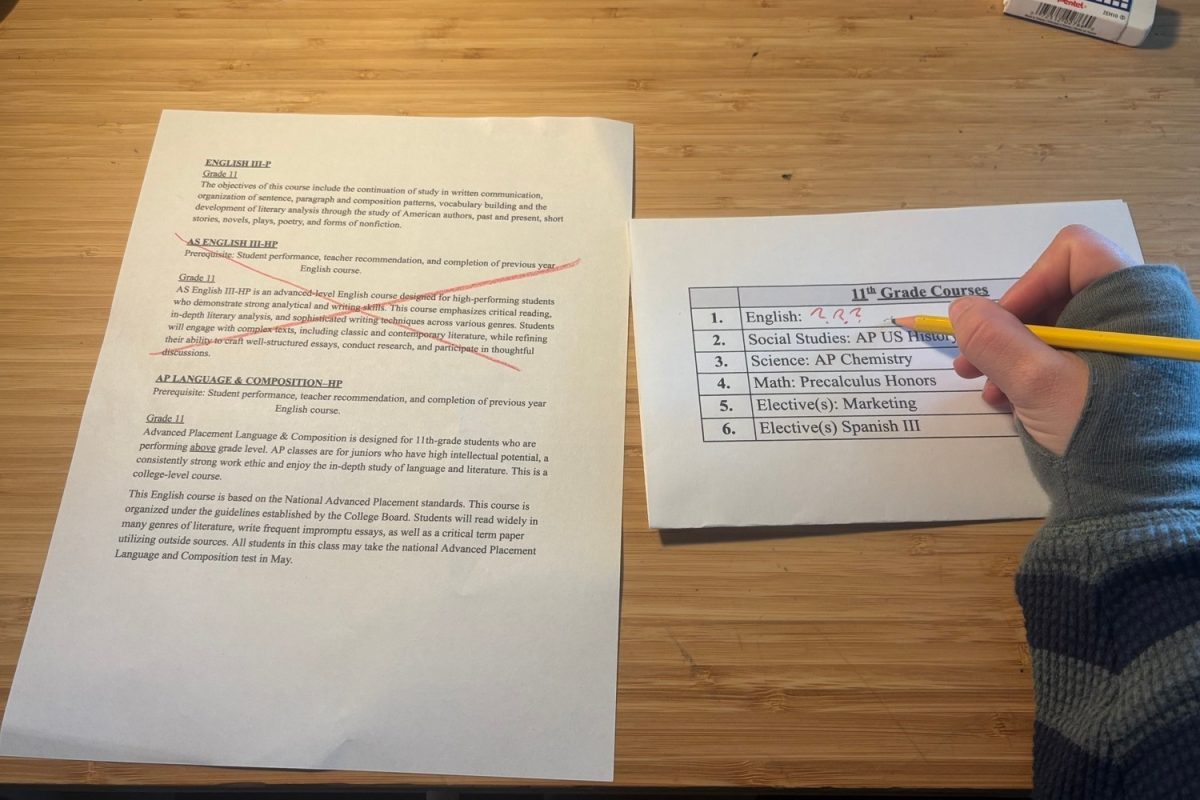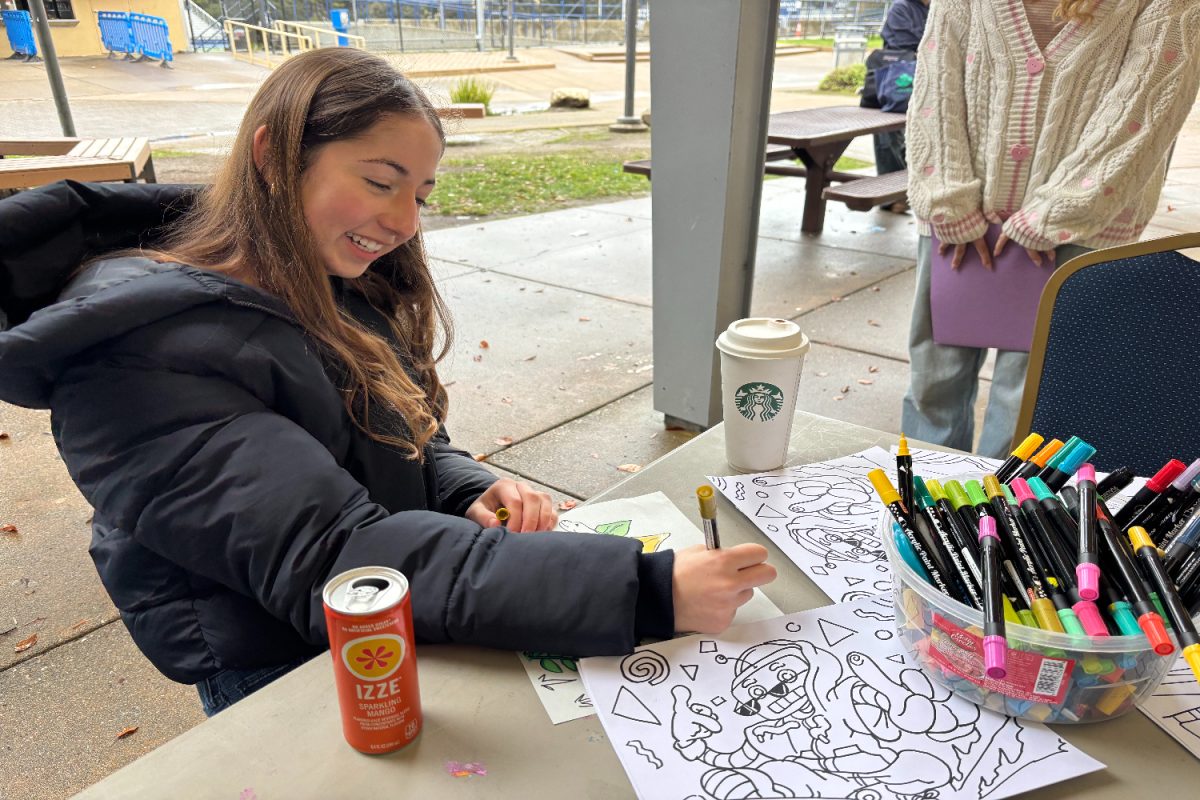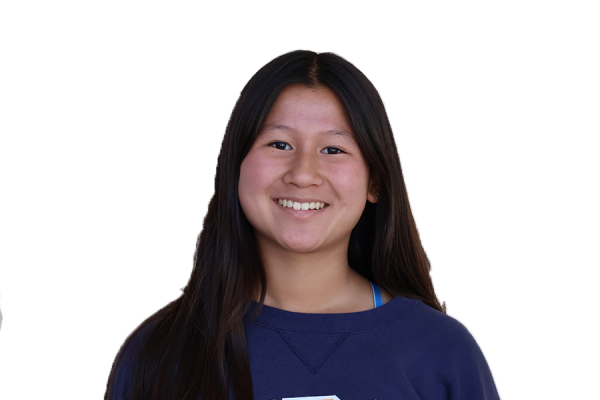A new environment creates both challenges and opportunities for non-native English speakers.
According to the Journal of Neurolinguistics, 43% of the world is bilingual, while 17% is multilingual. Studies from Harvard University have shown that being multilingual is positively correlated with cognitive health and job opportunities. Additionally, being able to communicate with a more diverse group of people is a benefit in itself.
Carlmont Freshman Clara Preger is trilingual and speaks Portuguese, French, and English. She lived in Brazil for five years and in France for a couple of years. Preger enjoys being able to communicate with people while traveling abroad. She visits Brazil or France almost every year.
“I mostly needed my English for school, so I just started it at school by myself. It was easier to speak first, for sure, and then I gradually got better at writing,” Preger said.
Junior Rin Uchida grew up in Tokyo, Japan, and moved to New York before coming to the Bay Area right before her freshman year at Carlmont. She started learning English at the age of five in Japan, where she took classes with about 20 other students. Once a week, she would learn simple English terms from her teacher.
“I never thought I would live in the U.S. in the future, so I didn’t take the classes very seriously and thought that English was a language spoken in a country far away and that I would never use it in my life,” Uchida said.
Uchida had to adapt quickly from weekly classes to total immersion. At first, she struggled with how fast people were speaking.
“Even when I wanted to go to the bathroom during class, I had to hold myself back from going because I didn’t know how to ask,” Uchida said. “My first day of school in the U.S. was one of the biggest and most memorable events in my life. I still remember that all my classmates were really nice to me and tried their best to understand my poor English.”
However, after a few months, she gradually felt more comfortable. Some strategies she used to improve her pronunciation included saying everything in sight and mimicking song lyrics and TV shows.
“I think the best way to improve language skills is to actually go to the country where the language is spoken for a couple of months and speak with native speakers. It is better to learn a different language by experiencing it rather than just study the language in your own country,” Uchida said.
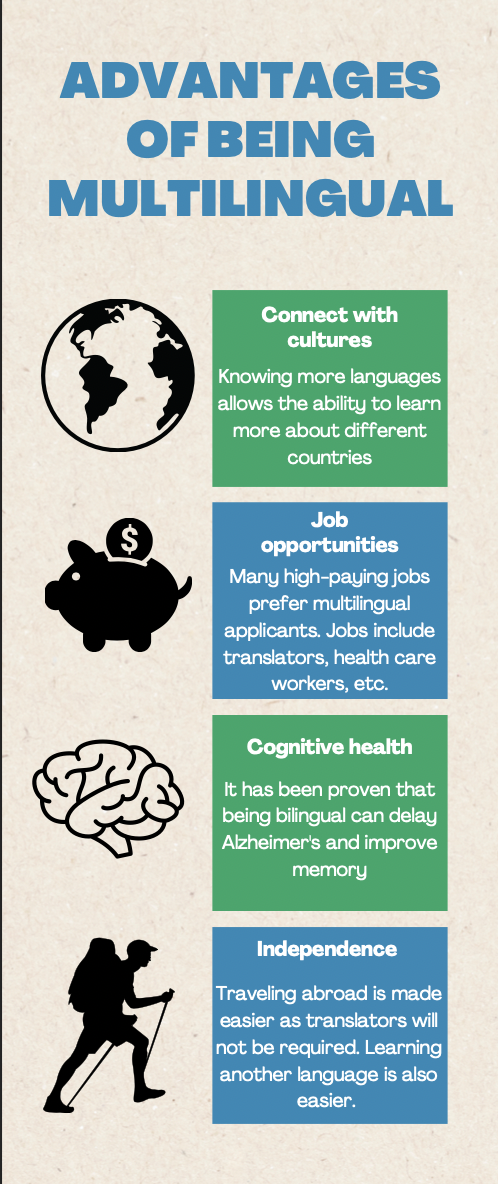
Preger started English classes before moving, but she didn’t find it as helpful as listening to people and gradually learning through that strategy.
“The hardest thing was probably not really understanding what other people were trying to tell me. Following directions at school and connecting with people were hard,” Preger said.
Uchida found ways to connect with others through her passion for dance. Joining a competitive dance team gave her opportunities to speak with those who shared the same passion.
“My family speaks Japanese at home. I take Japanese classes online with a school in Japan because I don’t want to forget the Japanese I use for academic work,” Uchida said.
Preger also retains her first language. She speaks Portuguese with her mom and French with her dad. She is also learning her fourth language, Spanish, at Carlmont. With her language skills in mind, she is definitely considering studying abroad in the future.
“I’d say one of the advantages is being able to connect with other cultures,” Preger said.
Benjamin Bonaccorsi is taking Advanced Placement (AP) French, but he is already fluent in French. This made the class easier even though he had to fix some bad habits. He agrees that being bilingual opens the doors to new cultures and people.
“I went to a village party and was easily able to interact and make friends with the kids my age. Speaking another language gives you insight on their culture and opinions,” Bonaccorsi said.
As the Vice President of Carlmont’s International Club, Uchida believes in the importance of making students from another country comfortable at school.
“The advantage of being bilingual is that it makes you more open-minded. If you learn another language that someone else wants to learn, you will want to help them,” Uchida said.

